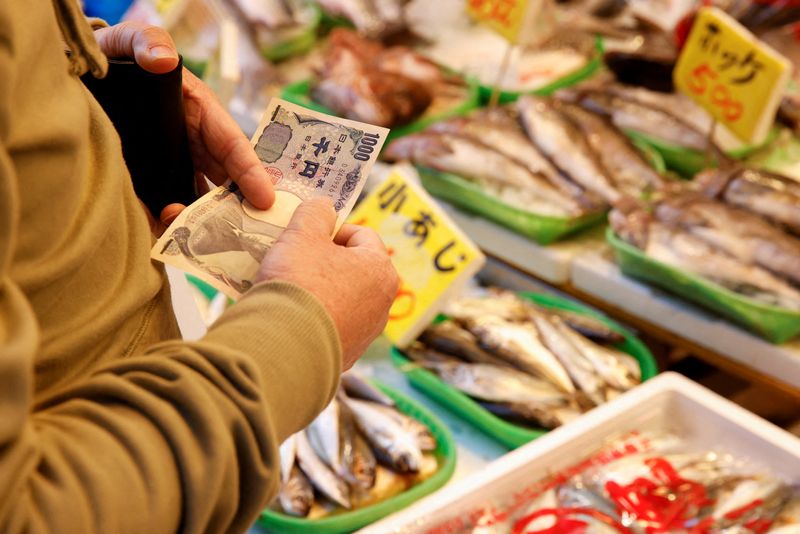Select Language

By Takahiko Wada and Leika Kihara
TOKYO (Reuters) -Core consumer inflation in Japan's capital slowed in May but a key index stripping away the effect of fuel hit a four-decade high, underscoring broadening price pressure that may keep alive expectations of a withdrawal of ultra-loose monetary policy.
The data for Tokyo, which is seen as a leading indicator of nationwide trends, showed companies continued to pass on rising costs to households in a sign inflationary pressure could last longer than the Bank of Japan (BOJ) projects.
The Tokyo core consumer price index (CPI), which excludes volatile fresh food but includes fuel costs, rose 3.2% in May from a year earlier, government data showed on Friday, roughly matching a median market forecast for a 3.3% gain.
Inflation slowed from the previous month's 3.5% but stayed above the BOJ's 2% target for a full year, the data showed.
The dollar pared some losses against the yen after the data and stood around 140.05 in Asia trade on Friday.
A separate index stripping away both fresh food and fuel costs rose 3.9% in May from a year earlier, marking the fastest pace of increase since April 1982 when Japan was experiencing an asset-inflated bubble.
Japan's economy is finally recovering from the scars of the COVID-19 pandemic, though risks of a global slowdown and rising food prices hang over the outlook for exports and consumption.
With inflation already exceeding its target, markets are rife with speculation the BOJ could soon phase out ultra-loose monetary policy under new governor Kazuo Ueda.
Ueda, however, has brushed aside the chance of a near-term policy tweak, stressing that inflation must sustainably hit the BOJ's 2% target and accompanied by solid wage growth for the bank to consider phasing out stimulus.

